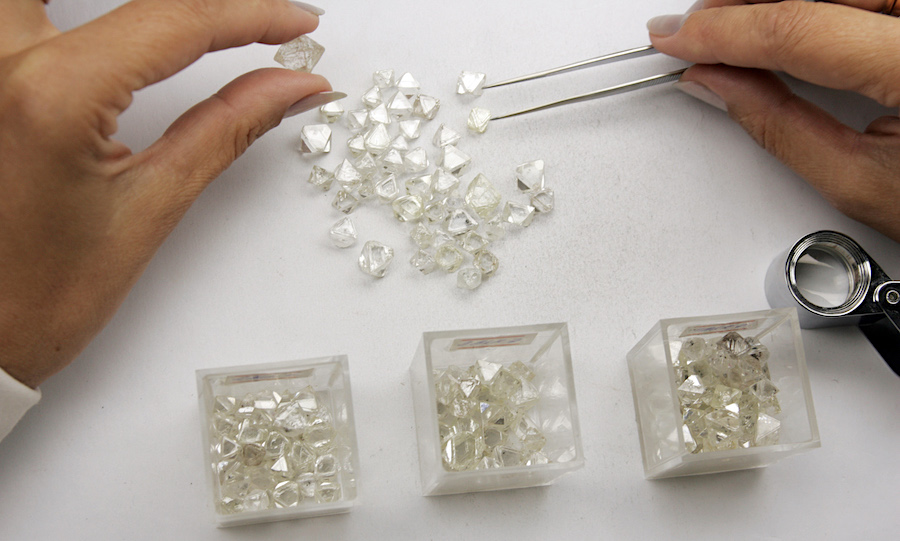Civil society group flays diamond watchdog over Russia stalemate

The Kimberley Process Civil Society Coalition on Monday sharply criticised the global diamond watchdog for resisting efforts to discuss Russia’s invasion of Ukraine, at this week’s international conflict diamond meeting began in Botswana.
A rift has emerged within the Kimberley Process (KP) — a coalition of governments, the diamond industry and the umbrella coalition representing civil society — created to prevent the use of gems to fund conflict, over top producer Russia’s invasion of Ukraine.
“Indeed, the silence of the KP over the Ukraine crisis confirms that we are right to challenge the claim that conflict diamonds represent less than 1% of all diamonds in circulation,” said Michel Yoboué, coordinator of the Kimberley Process Civil Society Coalition.
In the run-up to this week’s meeting, Ukraine, the European Union, Australia, Britain, Canada, the United States and civil society groups were pushing to place Russia on the agenda, as well as to broaden the KP’s definition of conflict diamonds to include state actors using the stones to fund acts of aggression.
The United States and Britain have imposed sanctions on Russia’s Alrosa, the world’s largest producer of rough diamonds, which accounted for around 30% of global output last year, and is partly state-owned.
Russia, backed by Belarus, Mali, Central African Republic (CAR) and Kyrgyzstan, objected to the proposals, dashing any hopes of action by the KP, which makes decisions by consensus.
“The fact that the KP is unable to even discuss whether it should continue certifying Russian diamonds as conflict-free, reaffirms what we have been denouncing for years: That the world’s conflict diamond scheme is no longer fit for purpose,” Yoboué said in his speech at the gathering.
The meeting ran into the night after a lengthy adjournment as delegates wrangled over the agenda.
During his address earlier in the day, host Botswana’s mines minister Lefoko Moagi had encouraged the meeting to discuss “even the most uncomfortable KP issues.”
(By Nelson Banya; Editing by Sandra Maler)
{{ commodity.name }}
{{ post.title }}
{{ post.date }}




Comments